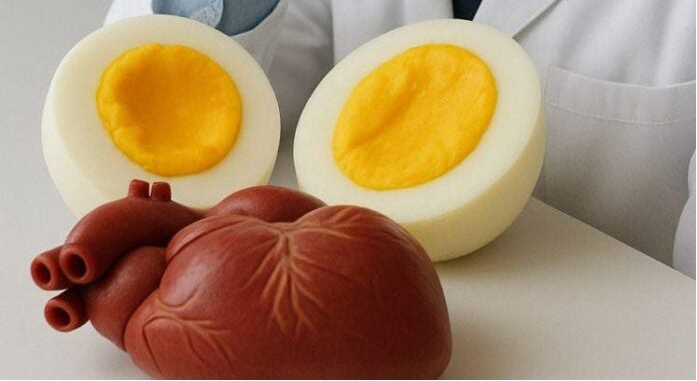For decades, eggs carried an unfair reputation. Many people avoided them out of fear they were “too high in cholesterol” and harmful to the heart. But in recent years, doctors and researchers have taken a closer look—and the results may surprise you.
Eating a boiled egg in the morning can actually support your heart and vascular health when enjoyed in moderation and as part of a balanced diet. In fact, this simple breakfast staple is packed with nutrients your body needs for circulation, muscle strength, and long-term wellness.
Why Boiled Eggs Are Good for Heart and Vascular Health
1. A Source of High-Quality Protein
Each boiled egg provides about six grams of complete protein, containing all nine essential amino acids. This isn’t just important for building muscle in the arms or legs—it’s vital for maintaining a strong and healthy heart muscle. Protein also helps stabilize metabolism, which supports better blood sugar balance and overall cardiovascular health.
2. Nutrient Powerhouses for Circulation
Boiled eggs may look simple, but their nutritional profile is impressive:
- Choline – helps regulate homocysteine, a compound that, when too high, is linked to heart disease.
- Vitamin D – essential for the health of blood vessel linings and for managing blood pressure.
- Selenium and Vitamin B12 – critical for producing healthy red blood cells and keeping circulation strong.
Together, these nutrients nourish not just your heart, but the entire vascular system.
3. Helping With Weight Control
One of the most overlooked benefits of eggs is how filling they are. Because they provide steady protein and healthy fats, they keep you full for hours. By reducing mid-morning snacking or overeating later in the day, eggs indirectly protect your vascular health—since excess weight is a major risk factor for high blood pressure, atherosclerosis, and heart disease.
What About Cholesterol? Separating Myth From Fact
The main concern many people still have about eggs is cholesterol. One boiled egg contains about 186 mg of cholesterol, mostly in the yolk.
Here’s what doctors now emphasize:
- For most healthy adults, dietary cholesterol has little effect on blood cholesterol levels.
- The latest U.S. Dietary Guidelines (2020–2025) no longer set a strict cholesterol limit, focusing instead on overall dietary balance.
- The real culprits for poor heart health are saturated and trans fats, not the cholesterol naturally found in eggs.
However, there are exceptions. People with type 2 diabetes, familial hypercholesterolemia, or existing heart disease may need to limit egg yolks. In those cases, it’s important to consult a doctor or dietitian.
Why Boiled Eggs Are Better Than Fried
Not all eggs are created equal—at least not in how they’re cooked. Boiling eggs is one of the healthiest methods because it avoids the extra oils, butter, or margarine often used when frying.
Frying at high heat can also oxidize oils, creating compounds that may damage blood vessels over time. By contrast, boiled eggs deliver the nutrients without the harmful extras, making them a heart-friendlier choice.
How Many Eggs Are Safe to Eat?
For most people, one boiled egg per day—especially as part of a breakfast that also includes whole grains, fruits, or vegetables—is not only safe but potentially beneficial. Combined with a diet rich in leafy greens, nuts, legumes, and healthy fats like olive oil, eggs fit seamlessly into a heart-healthy lifestyle.
If you love eggs, remember balance is key: pair them with fiber-rich foods and avoid loading them with processed meats like bacon or sausage, which add unhealthy saturated fats and sodium.
Boiled eggs aren’t just a quick breakfast—they’re a nutrient-dense food that can support your heart, circulation, and long-term vascular health.
- They provide protein for strong muscles, including the heart.
- They supply key nutrients like choline, vitamin D, selenium, and B12.
- They help with satiety and weight management.
- When boiled instead of fried, they avoid the hidden dangers of oxidized oils.
For most healthy adults, one egg a day in the morning is perfectly safe—and may even protect the heart. But if you already struggle with high cholesterol, diabetes, or cardiovascular conditions, talk to your doctor before making eggs a daily habit.
Sometimes the simplest foods, like a humble boiled egg, can make the biggest difference in keeping your body strong and your heart beating steady.



